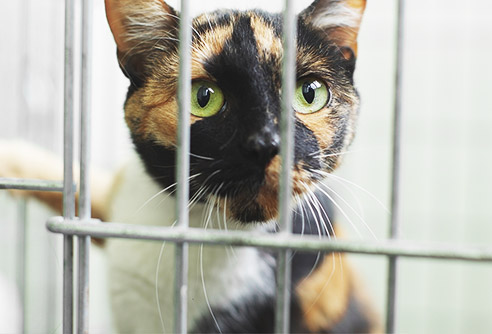Hospitalization
During a consultation for a sick pet, the veterinarian may determine that hospitalization for a few days is necessary to maximize the chances of recovery. For example, a pet that is severely dehydrated due to gastroenteritis may require hospitalization to receive intravenous fluids, restore electrolytes, and administer medications that cannot be tolerated orally due to vomiting.

The veterinarian will closely monitor your pet’s progress through physical examinations in the morning and evening (or more frequently if needed) and will communicate with you regarding your pet’s condition and the recommended treatment plan.
We understand that animals can experience more stress in a clinic setting than at home, which is why we only recommend hospitalization when it is truly in your pet's best interest. If your pet is in our care, you are welcome to call us during our opening hours for updates on its condition, or to schedule a visit if your pet has been with us for more than 24 hours. Anxiety medication can also be administered if stress levels are too high.

